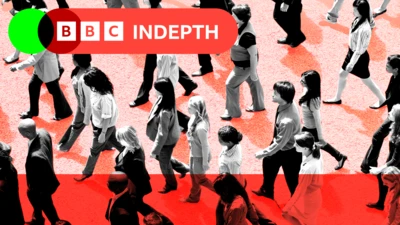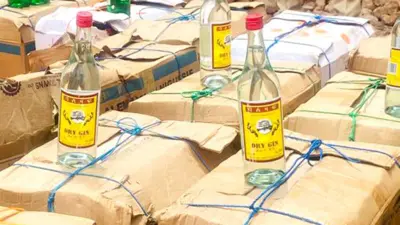We've updated our Privacy and Cookies Policy
We've made some important changes to our Privacy and Cookies Policy and we want you to know what this means for you and your data.
Ministers decide not to ban 'poppers'
Image source, PA
"Poppers" will not be banned as part of moves to outlaw so-called legal highs, a ΒιΆΉΤΌΕΔ Office minister has announced.
The U-turn came after the Advisory Council on the Misuse of Drugs said poppers should not be banned.
Popper-using MP Crispin Blunt led a Commons attempt in January to exempt poppers from what he said would be a "fantastically stupid" ban.
Popular with gay men, "poppers" is the name given to liquid chemicals called alkyl nitrates, which are sniffed.
Last week, its "consensus view is that a psychoactive substance has a direct action on the brain and that substances having peripheral effects, such as those caused by alkyl nitrites, do not directly stimulate or depress the central nervous system".
In a letter responding, ΒιΆΉΤΌΕΔ Office Minister Karen Bradley said: "Having given due consideration, the government agrees with your advice and interpretation of the definition."
She added: "Our understanding is that this approach does not have any further implications for the operation of the act and that other substances that the act intends to cover are not affected.
"We remain confident that the psychoactivity of those substances can be established under the definition in the act.
"We will ask law enforcement agencies to be guided by our agreement with your advice."
The Psychoactive Substances Act will bring in a blanket ban on the production, distribution, sale and supply of "designer drugs".
Sellers will face up to seven years in prison.
There were 11 deaths in England and Wales between 1993 and 2013 where the death certificate only mentioned an alkyl nitrate, according to the Advisory Council for the Misuse of Drugs.
What are poppers?
- Poppers are chemicals such as butyl nitrite, isopropyl nitrite, isobutyl nitrite and amyl nitrite, which dilate the blood vessels
- This action allows more blood to the heart and creates a "head rush" sensation
- Originally an angina treatment, they got their name from a glass vial that was "popped" under the nose
Top Stories
More to explore
Most read
Content is not available








